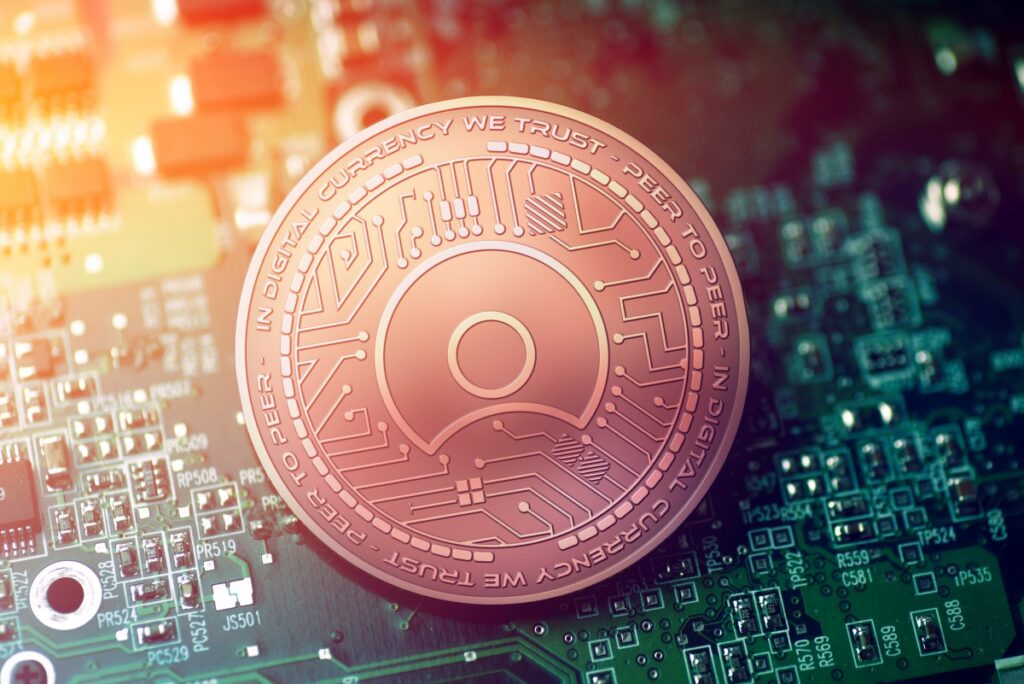How are ICO digital currencies offered for trading?

Table of Contents
In the dynamic landscape of modern finance, Initial Coin Offerings ICO digital has emerged as a groundbreaking method for fundraising and capital generation in the digital realm. These novel digital currencies, often referred to as tokens, have captivated the attention of investors and entrepreneurs alike, promising a transformative shift in how capital is raised and utilized. As we delve into the intricate world of ICOs, it becomes imperative to understand the underlying mechanisms that govern the offering and subsequent trading of these digital assets.
Introduction to ICOs and Digital Currencies: An Overview of the Emerging Financial Landscape
In the rapidly evolving landscape of finance and technology, Initial Coin Offerings (ICOs) have emerged as a groundbreaking method for raising capital and enabling the creation of digital currencies. ICOs represent a significant departure from traditional fundraising methods, offering both innovative startups and established companies a unique way to fund their projects and initiatives. This article delves into the fascinating world of ICOs and digital currencies, providing an overview of how ICOs work and their journey from initial offering to trading on secondary markets.
The ICO Trading Process: From Initial Offering to Secondary Markets
The ICO trading process encompasses several distinct phases, each crucial to the success and growth of a digital currency. It begins with the Initial Coin Offering, where a project’s creators issue tokens to investors in exchange for established cryptocurrencies such as Bitcoin or Ethereum, or even traditional fiat currencies. During this phase, investors effectively fund the project’s development by purchasing these tokens, which often represent a stake or utility within the ecosystem.
Following the ICO, the project’s tokens are typically listed on various cryptocurrency exchanges, marking the transition from the primary market to the secondary market. Here, early investors and other traders can buy and sell the tokens, potentially driving value appreciation as demand and trading activity increase. This secondary market activity provides liquidity to the digital currency, enabling participants to trade tokens freely and helping to establish their market value.

Key Players in ICO Trading: Exploring the Roles of Investors, Exchanges, and Regulators
1. Investors: Investors play a pivotal role in the ICO trading process. They contribute capital during the ICO phase, funding the project’s development and acquiring tokens at an early stage. These investors can include individuals, venture capital firms, hedge funds, and even institutional investors seeking exposure to the nascent digital currency space. Their participation provides the necessary financial backing for innovative projects to come to fruition.
2. Exchanges: Cryptocurrency exchanges act as intermediaries between ICO tokens and investors, facilitating the listing, buying, and selling of tokens on their platforms. These exchanges play a critical role in enhancing the liquidity and traceability of ICO tokens, making them accessible to a broader audience of traders and investors. As ICO tokens become available on exchanges, their prices are subject to market dynamics and can experience fluctuations based on supply and demand factors.
3. Regulators: Regulators and regulatory bodies are increasingly involved in overseeing the ICO trading landscape to ensure investor protection and prevent fraudulent activities. The regulatory environment for ICOs varies widely across different jurisdictions, with some countries embracing innovation and others imposing strict guidelines or outright bans. Regulatory actions such as legal frameworks, licensing requirements, and anti-money laundering (AML) regulations can significantly impact the ICO trading process and shape the industry’s legitimacy and long-term growth.
Also read: Exploring the Potential of Aether: Decentralized Finance and Beyond
Navigating ICO Investment: Steps for Participating in the ICO Market Safely
Initial Coin Offerings (ICOs) have revolutionized the way startups raise capital and investors participate in new ventures. An ICO is a fundraising method in which new digital currencies or tokens are issued to the public, allowing them to invest in the project’s potential success. While ICOs offer exciting investment opportunities, they also come with inherent risks. Navigating the ICO market safely requires careful consideration and due diligence. Here’s a step-by-step guide for participating in ICOs while minimizing risks:
- Research and Due Diligence: Before investing in any ICO, conduct thorough research on the project, its team, and its goals. Scrutinize the whitepaper, which outlines the project’s concept, technology, and token utility. Verify the team’s credentials and previous experiences in relevant fields.
- Understand the Tokenomics: Study the tokenomics of the project. This includes understanding the total supply of tokens, the allocation for different purposes (development, marketing, team, etc.), and the mechanisms for distributing and using the tokens within the ecosystem.
- Evaluate the Use Case: Assess the real-world applicability of the project’s concept. A strong use case indicates the potential for long-term value and adoption.
- Assess Market Demand: Analyze the market demand for the project’s product or service. A project with a clear value proposition and a large potential user base is more likely to succeed.
- Check Regulatory Compliance: Ensure that the ICO complies with relevant regulations in your jurisdiction. Unregulated ICOs can lead to legal issues down the road.
- Security Measures: Verify the project’s security measures. Look for audits of the smart contracts and assess the team’s commitment to maintaining a secure platform.
- Community and Communication: Engage with the project’s community and follow their communication channels. A strong and active community indicates a higher level of interest and support for the project.
- Participate with Caution: Only invest what you can afford to lose. ICOs are high-risk investments, and while they offer significant potential rewards, there is also a chance of losing your entire investment.
Trading Strategies for ICO Digital Currencies: Analyzing Trends and Factors Influencing Value
Once you’ve participated in an ICO and acquired tokens, the next step is to navigate the dynamic world of ICO digital currency trading. Successful trading strategies require a deep understanding of market trends and the factors that influence the value of these digital assets. Here are key considerations for devising effective trading strategies:
- Technical Analysis: Utilize technical analysis tools to study price charts and patterns. Identify support and resistance levels, moving averages, and other indicators to make informed trading decisions.
- Fundamental Analysis: Stay updated on the project’s developments, partnerships, and achievements. Positive news and milestones can have a significant impact on token value.
- Market Sentiment: Monitor market sentiment through social media, forums, and news outlets. Public perception and discussions can drive short-term price movements.
- Diversification: Spread your investments across multiple ICO digital currencies to minimize risk. Diversification can help protect your portfolio from the volatility of individual tokens.
- Risk Management: Set stop-loss orders to limit potential losses and take-profit targets to secure gains. Establish a risk-reward ratio that aligns with your risk tolerance.
- Stay Informed: Stay informed about regulatory changes and macroeconomic factors that could impact the entire cryptocurrency market. Regulatory developments can lead to sudden price fluctuations.
- Long-Term vs. Short-Term: Decide whether you are pursuing short-term gains or long-term holding. Different strategies apply based on your investment horizon.
- Trading Platforms: Choose reliable and secure trading platforms that offer the features you need. Ensure the platform provides adequate liquidity and supports the ICO digital currencies you’re interested in.

Regulatory Landscape and Future Outlook: Challenges and Prospects for ICO Trading and Market Evolution
The ICO market has undergone significant transformation since its inception, and its regulatory landscape has evolved accordingly. Regulatory bodies worldwide have grappled with how to oversee ICOs and ensure investor protection. The challenges and prospects for ICO trading and market evolution are closely tied to regulatory developments and technological advancements:
- Regulatory Challenges: Many jurisdictions have struggled to establish clear regulatory frameworks for ICOs. The lack of consistent definitions and guidelines has created uncertainty for both projects and investors.
- Investor Protection: Regulators have expressed concerns about fraudulent ICOs and scams, leading to investor losses. Striking a balance between innovation and protecting investors is a persistent challenge.
- Compliance and Legal Clarity: Projects must navigate a complex web of regulations to ensure compliance. Legal clarity is essential to fostering a healthy ICO ecosystem.
- Maturing Market: As the ICO market matures, legitimate projects are adopting more robust practices, including enhanced due diligence, compliance measures, and improved transparency.
- Tokenization of Assets: ICOs have paved the way for the tokenization of real-world assets, from real estate to artworks. This trend could reshape traditional financial markets.
- Interoperability and Standards: The future of ICO trading may involve improved interoperability between different blockchain platforms and the establishment of industry standards.
- Mainstream Adoption: As ICOs gain wider recognition and acceptance, they could play a crucial role in driving mainstream adoption of blockchain technology and cryptocurrencies.
- Evolution of ICOs: ICOs may evolve into more regulated and secure forms, such as Security Token Offerings (STOs), which adhere to stricter legal requirements.
Also read: Aether Smart Contracts: Enabling Trustless Transactions
FAQS
Q: What is an ICO digital currency?
A: An ICO digital currency refers to a type of cryptocurrency that is initially offered to the public through an Initial Coin Offering (ICO) as a means of fundraising for a blockchain-based project.
Q: What is an Initial Coin Offering (ICO)?
A: An ICO is a fundraising method where a blockchain project offers its own digital tokens or coins to investors and the public in exchange for funding.
Q: How are ICO digital currencies offered for trading?
A: ICO digital currencies are typically offered for trading on cryptocurrency exchanges after the ICO concludes. These exchanges facilitate the buying, selling, and trading of these tokens, providing a platform for investors to participate.
Q: What happens during an ICO?
A: During an ICO, the blockchain project publishes a whitepaper detailing its concept, technology, and goals. Investors can then purchase the project’s tokens using established cryptocurrencies like Bitcoin or Ethereum. These tokens represent a stake in the project and may have specific utilities within the project’s ecosystem.
Q: How are ICO prices determined?
A: The price of ICO tokens is often set by the project team based on factors such as development costs, market demand, and the total supply of tokens. Early investors in the ICO may receive bonuses or discounts on token prices.
Q: What risks are associated with trading ICO digital currencies?
A: Investing in ICO digital currencies involves risks such as regulatory uncertainty, project failure, market volatility, and potential scams. Investors should conduct thorough research and due diligence before participating in any ICO.
Q: Are ICOs regulated?
A: The regulatory status of ICOs varies by country. Some countries have imposed regulations to protect investors from fraudulent ICOs, while others have banned ICOs altogether due to concerns about investor protection and financial stability.
Q: How does trading ICO digital currencies differ from established cryptocurrencies?
A: Trading ICO digital currencies can differ from established cryptocurrencies as ICO tokens may have unique features, use cases, and values specific to the project. Established cryptocurrencies like Bitcoin and Ethereum are more widely recognized and traded.
Q: Can anyone participate in ICOs?
A: Generally, ICOs are open to anyone with access to cryptocurrencies and the internet. However, some ICOs may have restrictions based on jurisdiction or investor accreditation.
Q: What is the role of cryptocurrency exchanges in ICO trading?
A: Cryptocurrency exchanges play a crucial role in facilitating the trading of ICO digital currencies. They provide a platform for users to buy, sell, and trade these tokens once they are listed after the ICO.




